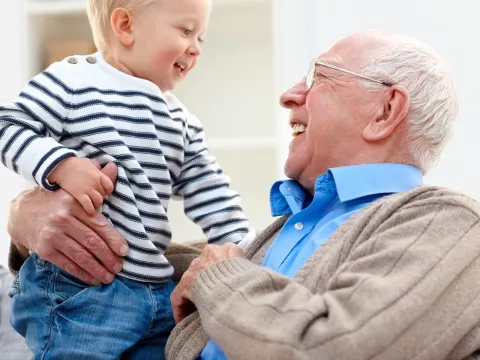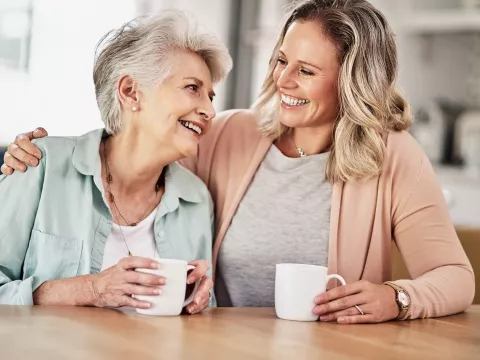- AdventHealth

If you care for a young child or an older adult, preventing falls or other home accidents is probably on your mind. But where to start?
In either case, it’s about making your home as safe as you can while also encouraging safe habits.
Preventing falls in older adults is about addressing their environment and helping them build balance skills. Safety features like handrails on both sides of the stairs and non-slip rugs can prevent devastating injuries. Nineteen in 20 broken hips, for example, are caused by falls.
Your loved one values their independence and ability to control their life. Taking these steps is one way to show you care about them and want to help them stay in their home as long as possible.
For children, securing furniture, TVs and appliances and teaching kids not to play on them can protect them from serious injury. Children may not realize the potential consequences of pulling at and playing on heavy furniture that could fall on them.
Falling TVs, appliances and furniture send thousands of American children to the emergency room every year. Even worse, these types of accidents kill nearly 100 children annually.
Meanwhile, millions of older Americans are injured in falls each year. AdventHealth believes making the choice to lower the risk of falls is one way that we can take control over our health.
Here are some tips to help the older adults in your life prevent falls and stay healthy:
- Assess the home for safety. Make sure all stairs are well-lit and have two handrails. Tack throw rugs to the floor or make sure they have skid-proof backs. Install grab bars in the bathroom near the tub and toilet, where your loved one can reach them.
- Keep up on eye health. Poor vision is a leading cause of falls. Take your loved one for a yearly eye exam to check vision and update any prescriptions for glasses. If he or she wears bifocals, use extra caution on stairs.
- Exercise regularly. Make sure to include activities that work the person’s leg muscles. Walking, stair climbing and tai chi are good options.
- Review medicines. Some medicines can increase the risk for falls by causing dizziness, drowsiness or dehydration. If your loved one is taking a medicine that has side effects, encourage him or her to talk with his or her doctor.
- Get extra help for walking. If your loved one has trouble with walking, a physical therapist can create an exercise plan to help build strength and balance. If necessary, he or she can also recommend a walker or cane and show your loved one how to properly use it.
While children bounce back from falls easier, their light weight and small size puts them at risk from heavy TVs, furniture and appliances. Here are tips to prevent injury to kids from all three of these objects.
Televisions
- Set TVs on low, wide tables and push them back as far as they’ll go.
- Don’t put TVs on top of dressers or on open shelves.
- Use a strap to attach TVs to a stand or wall.
- Follow the manufacturer’s instructions for attaching flat screens to the wall.
Furniture
- Fasten dressers, bookshelves and entertainment centers to walls with safety straps, brackets or other devices.
- Store heavy items on the lowest shelves of entertainment centers and shelving units.
- Mount drawer stops on all drawers.
- Place electrical cords from TVs and other appliances well behind furniture. That will help keep children from pulling these items down on themselves.
- Discourage climbing by not placing toys, TV remote controls and other items that attract children on top of entertainment centers or other heavy furniture.
Appliances
- Verify that your stove, oven or range has an anti-tip bracket that attaches it firmly to the wall or floor.
- If an appliance has no bracket or the bracket is not secure, order one from the manufacturer and install it properly.
- Don’t set heavy items on the oven door.
- Never stand or step on an oven door.
- Move cookies and other tempting foods away from the oven to discourage children from using the door as a step stool to reach them.
Whether you’re working hard to keep your child safe or protecting an older adult from falls, it feels good to be proactive and help. Knowing we’ve helped someone lifts our spirit and builds our bonds with others, strengthening our own well-being.
Sometimes, a fall or other accident happens despite our best efforts. AdventHealth’s urgent care centers and emergency departments offer convenient, on-demand care.
For a list of all of your options, check out our website.



